Chapter 16: Implementing Program Management Phase

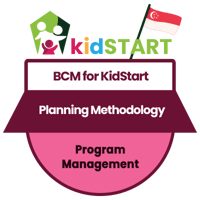 This Program Management (PgM) phase is not a one-time event but rather an ongoing process that ensures the long-term sustainability and effectiveness of the BCMS.
This Program Management (PgM) phase is not a one-time event but rather an ongoing process that ensures the long-term sustainability and effectiveness of the BCMS.
It involves continuous monitoring, evaluating, and improving all BCM plans and procedures.
The Program Management phase emphasises the importance of regular reviews, updates, and maintenance of all BCM Plans to reflect changes in the internal and external environment, emerging risks, and lessons learned from past incidents.
This chapter will explore key activities within the Program Management phase, such as conducting regular reviews, conducting tabletop exercises, conducting incident reviews, providing staff training and awareness programs, and maintaining open communication with all stakeholders.
Key Objectives of the Program Management Phase
- Maintain and Update BCM Plans: All BCM Plans should be regularly reviewed, updated, and maintained to reflect changes in the internal and external environment, emerging risks, and lessons learned from past incidents.
- Conduct Ongoing Monitoring and Evaluation: Continuously monitor the BCMS's effectiveness and identify areas for improvement.
- Facilitate Continuous Improvement: Implement a process for continuously improving the BCMS based on feedback from testing, exercise, and operational experience.
- Promote a Culture of Preparedness: Foster a culture of preparedness and resilience throughout the organisation.
- Ensure Compliance: Ensure compliance with all legal and regulatory requirements related to BCM.
Key Activities of the Program Management Phase
- Regular Reviews: All BCM Plans should be reviewed regularly, typically annually, to ensure their accuracy, relevance, and effectiveness.
- Tabletop Exercises: Conduct periodic tabletop exercises to simulate potential disruptions and test the effectiveness of response procedures.
- Incident Reviews: Thoroughly review all incidents and disruptions to identify lessons learned and incorporate them into the BCMS.
- Staff Training and Awareness: Provide ongoing training and awareness programs for all staff members on BCM procedures and responsibilities.
- Communication and Stakeholder Engagement: Regarding BCM initiatives, maintain open and effective communication with all stakeholders, including staff, volunteers, beneficiaries, funders, and community partners.
- Resource Management: Ensure adequate resources are allocated for the ongoing maintenance and improvement of the BCMS.
Key Considerations for KidSTART Singapore
- Prioritise Child and Family Well-being: Ensure that all BCM activities prioritise the safety and well-being of children and families.
- Community Engagement: Involve community partners and stakeholders in the ongoing development and improvement of the BCMS.
- Technology and Innovation: Leverage technology and innovation to enhance the BCMS's effectiveness, such as using digital platforms for communication and collaboration.
- Continuous Learning: Foster a culture of constant learning and improvement within the organisation, encouraging staff to share best practices and lessons learned.
Summing Up...
The Program Management phase is a crucial and ongoing component of KidSTART's BCM planning methodology.
By effectively managing and maintaining the BCMS, the organisation can ensure its long-term effectiveness in mitigating risks, responding to disruptions, and fulfilling its mission to support vulnerable children and families.
This chapter emphasises the importance of ongoing maintenance, continuous improvement, and a proactive approach to BCM management. These will ensure that KidSTART remains well-prepared for future challenges and continues to provide essential services to the community.
This ongoing phase ensures the long-term sustainability and effectiveness of the BCMS through continuous monitoring, evaluation, and improvement.
Key activities include regular reviews and updates of BC Plans, conducting tabletop exercises, providing staff training, and maintaining open communication with stakeholders.
This phase emphasises a culture of preparedness and resilience, ensuring KidSTART remains well-equipped to address future challenges and deliver essential services to vulnerable children and families.
More Information About Business Continuity Management Courses

 To learn more about the course and schedule, click the buttons below for the BCM-300 Business Continuity Management Implementer [B-3] course and the BCM-5000 Business Continuity Management Expert Implementer [B-5].
To learn more about the course and schedule, click the buttons below for the BCM-300 Business Continuity Management Implementer [B-3] course and the BCM-5000 Business Continuity Management Expert Implementer [B-5].
![Register [BL-B-3]*](https://no-cache.hubspot.com/cta/default/3893111/ac6cf073-4cdd-4541-91ed-889f731d5076.png) |
 |
 |
 |
 |
 |
![FAQ [BL-B-3]](https://no-cache.hubspot.com/cta/default/3893111/b3824ba1-7aa1-4eb6-bef8-94f57121c5ae.png) |
If you have any questions, click to contact us.
|
 |
 |
 |
 |


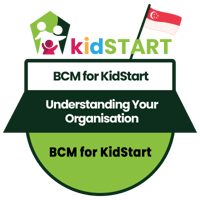
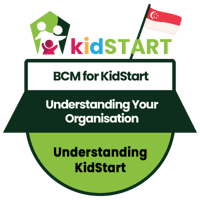
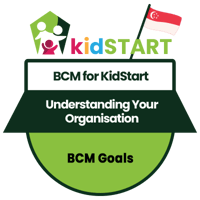
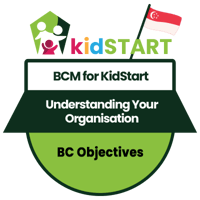
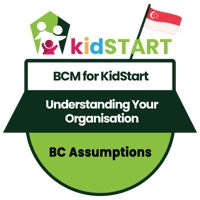
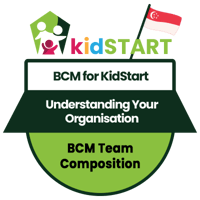
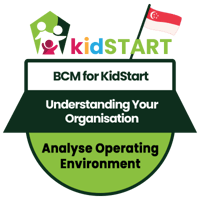
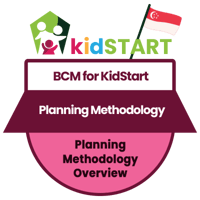
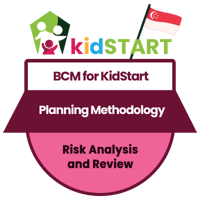
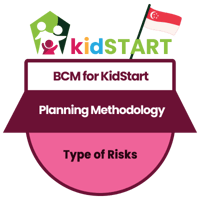
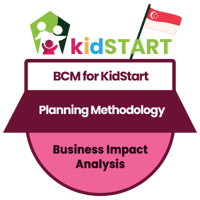
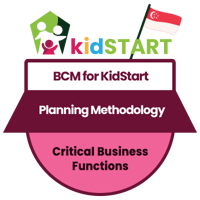
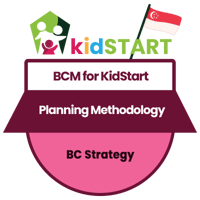
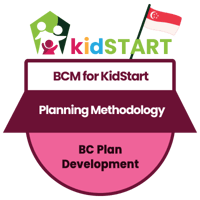
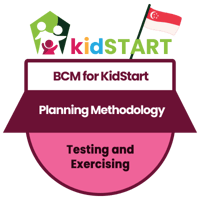
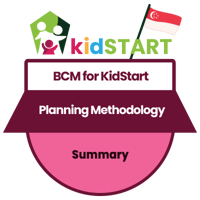
![Email to Sales Team [BCM Institute]](https://no-cache.hubspot.com/cta/default/3893111/3c53daeb-2836-4843-b0e0-645baee2ab9e.png)

